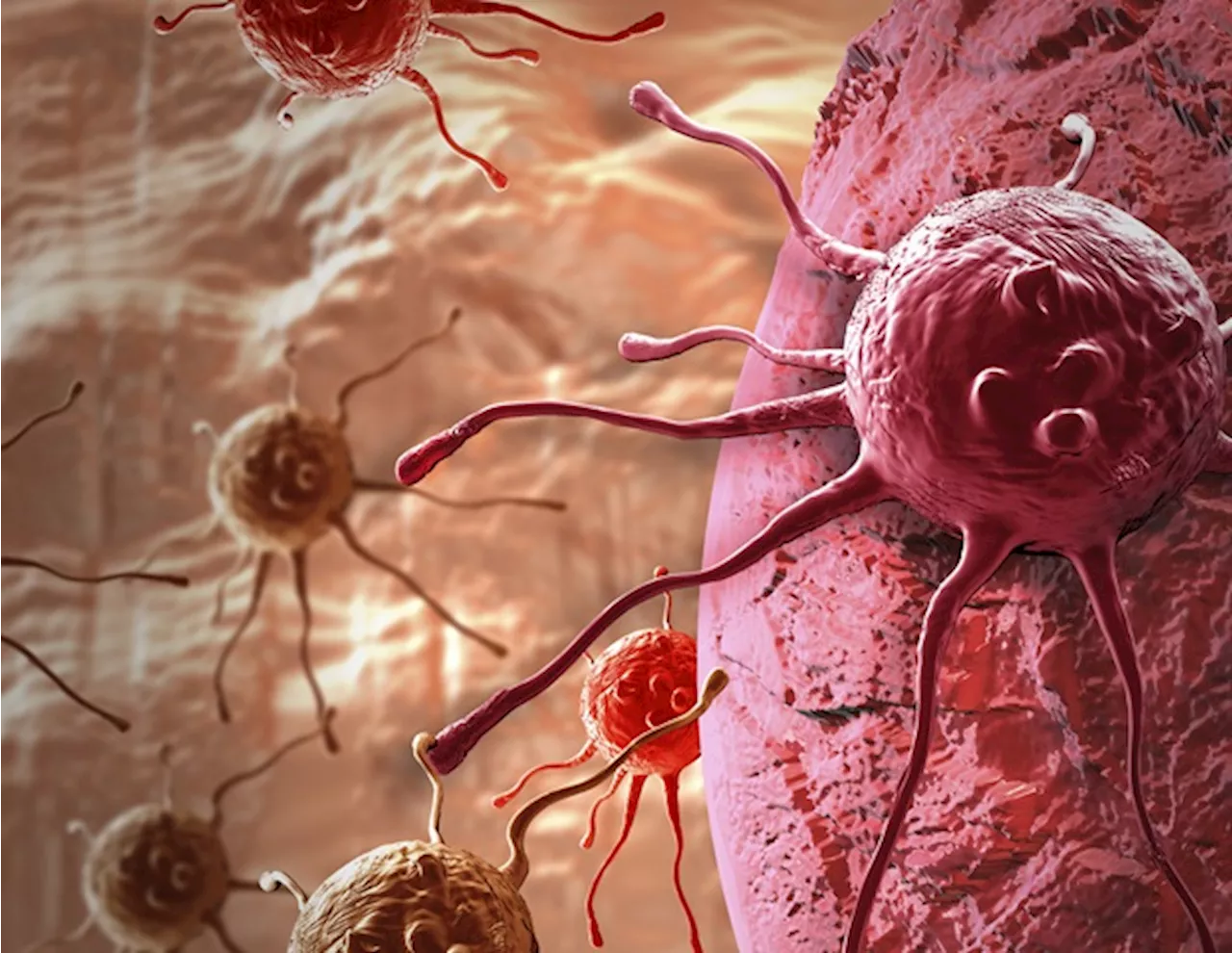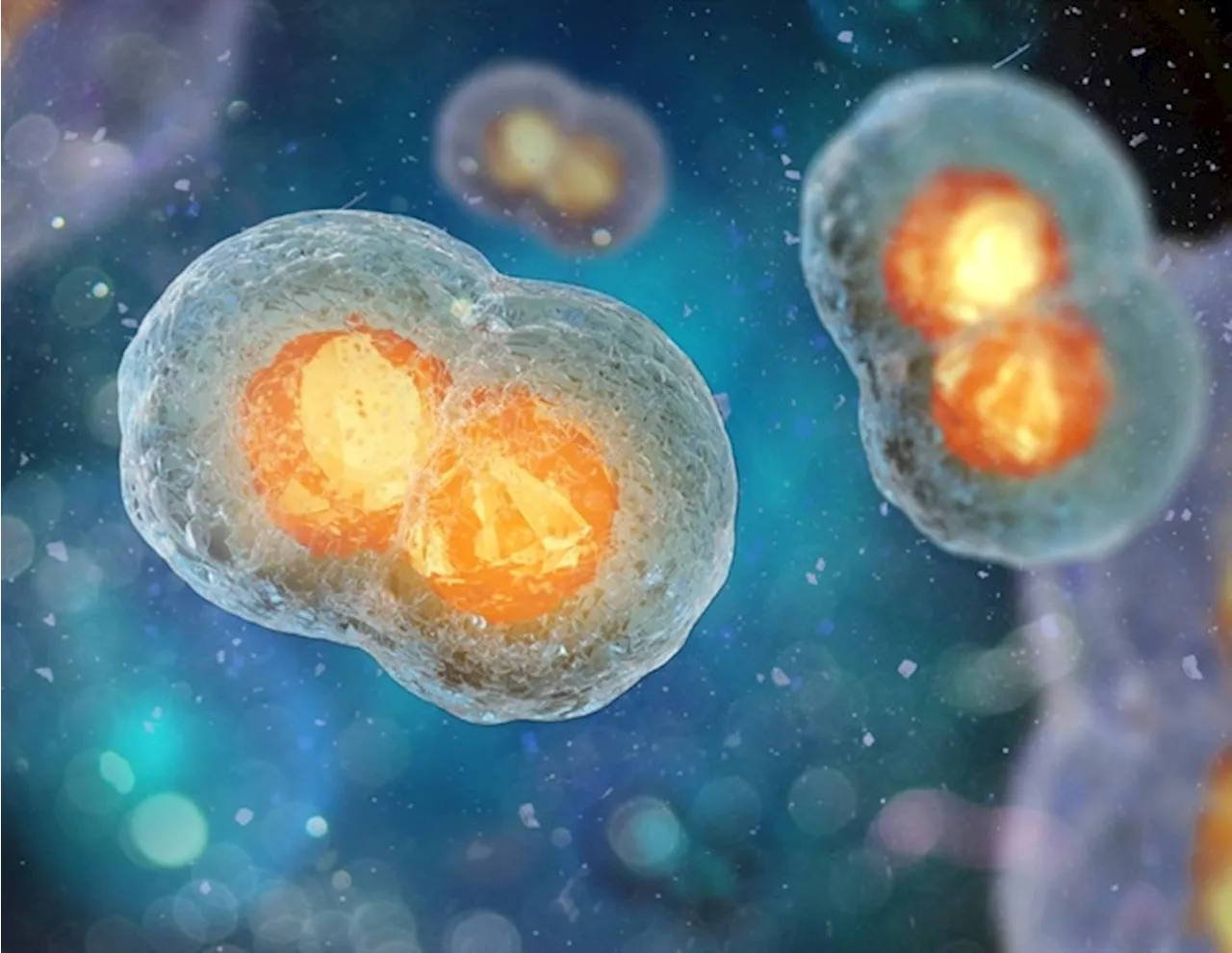Before a cell commits fully to the process of dividing itself into two new cells, it may ensure the appropriateness of its commitment by staying for many hours-;sometimes more than a day-;in a reversible intermediate state, according to a discovery by researchers at Weill Cornell Medicine.
Weill Cornell Medicine Jun 27 2024 Their revelation of this fundamental feature of biology includes details of its mechanisms and dynamics, which may inform the development of future therapies targeting cancers and other diseases.
Although the role of this pre-commitment state of cell division is not yet entirely clear, it appears to be a safety mechanism to avoid inappropriate cell division, and may also activate DNA-repair functions. In any case, it appears to be a basic-;and until now undiscovered-;aspect of cell biology, with likely implications for understanding cancer, wound healing, and other cell division-related processes.
Cell division is the basic process underlying the growth and development of living things, and even in adult organisms is necessary for the repair of wounds and the general maintenance of tissues. While it has been known that the division process starts in a cell when various input signals trigger the activation of E2F, how this works has always been something of a mystery.
"It became clear that cells can stall in this primed state for more than a day before returning to quiescence or advancing to cell division," Dr. Konagaya said.
Cell Division Cancer DNA DNA Damage Mammalian Cells Medicine Protein Transcription
Deutschland Neuesten Nachrichten, Deutschland Schlagzeilen
Similar News:Sie können auch ähnliche Nachrichten wie diese lesen, die wir aus anderen Nachrichtenquellen gesammelt haben.
 Weill Cornell Medicine receives $1.5M grant to predict prostate cancer bone metastasisWeill Cornell Medicine received a $1.5 million grant from the U.S. Department of Defense Prostate Cancer Research Program to develop new approaches for predicting the spread of cancer cells to the bone in men with prostate cancer, using tumor samples taken at early stages of the disease.
Weill Cornell Medicine receives $1.5M grant to predict prostate cancer bone metastasisWeill Cornell Medicine received a $1.5 million grant from the U.S. Department of Defense Prostate Cancer Research Program to develop new approaches for predicting the spread of cancer cells to the bone in men with prostate cancer, using tumor samples taken at early stages of the disease.
Weiterlesen »
 Innovative 3D cell culturing method offers new insights into cancer cell mechanicsDeveloping chemotherapy drugs against breast cancer is costly, slow, and often inefficient, with more than 95% of screened drug candidates failing in patient trials.
Innovative 3D cell culturing method offers new insights into cancer cell mechanicsDeveloping chemotherapy drugs against breast cancer is costly, slow, and often inefficient, with more than 95% of screened drug candidates failing in patient trials.
Weiterlesen »
 Improving cell therapy by creating T-cell 'super soldiers'A new proof-of-concept study by researchers at the Herbert Irving Comprehensive Cancer Center (HICCC) shows that changing only a single letter in the DNA code of selected genes in T cells may lead to improved cell therapy.
Improving cell therapy by creating T-cell 'super soldiers'A new proof-of-concept study by researchers at the Herbert Irving Comprehensive Cancer Center (HICCC) shows that changing only a single letter in the DNA code of selected genes in T cells may lead to improved cell therapy.
Weiterlesen »
 Researchers overturn the prevailing theory for colorectal tumor initiationResearch led by Weill Cornell Medicine provides new evidence that most colorectal cancers begin with the loss of intestinal stem cells, even before cancer-causing genetic alterations appear.
Researchers overturn the prevailing theory for colorectal tumor initiationResearch led by Weill Cornell Medicine provides new evidence that most colorectal cancers begin with the loss of intestinal stem cells, even before cancer-causing genetic alterations appear.
Weiterlesen »
 Researchers identify the initial steps in colorectal cancer formationResearch led by Weill Cornell Medicine provides new evidence that most colorectal cancers begin with the loss of intestinal stem cells, even before cancer-causing genetic alterations appear.
Researchers identify the initial steps in colorectal cancer formationResearch led by Weill Cornell Medicine provides new evidence that most colorectal cancers begin with the loss of intestinal stem cells, even before cancer-causing genetic alterations appear.
Weiterlesen »
 Horrifying video shows chaotic scene after four US Cornell College teachers ‘brutally’ stabbed in busy Chi...
Horrifying video shows chaotic scene after four US Cornell College teachers ‘brutally’ stabbed in busy Chi...
Weiterlesen »
